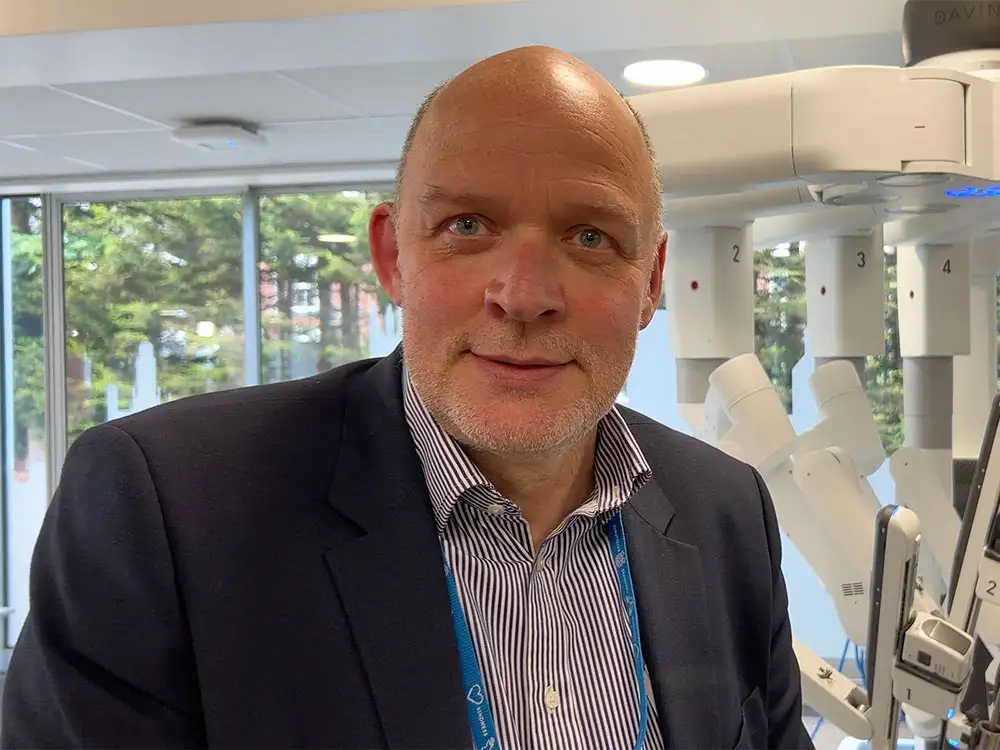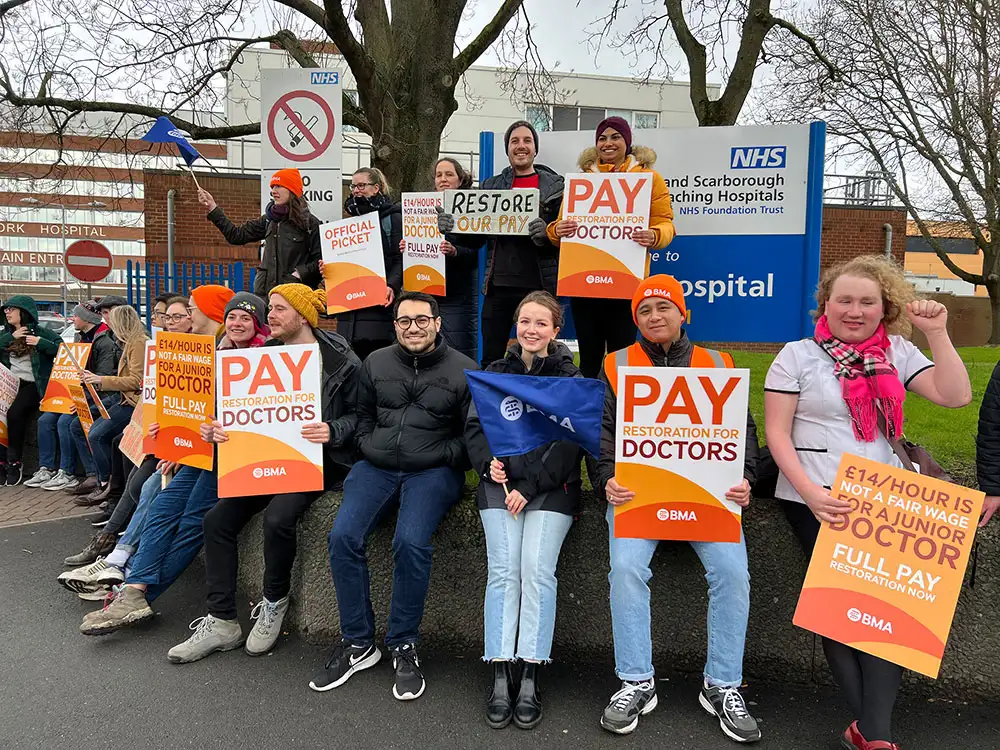Staff in York and Scarborough hospitals are “fatigued” as they are covering striking colleagues’ shifts at the last minute.
Strikes involving doctors and medical students in December and January cost York and Scarborough Teaching Hospitals NHS Foundation Trust almost £2m.
The British Medical Association (BMA) took industrial action between 20 December and 23 December, as well as between 3 January and 9 January.
The second of those strikes was the longest consecutive action ever taken in the history of the NHS.
At a board of directors meeting on 28 February, Simon Morritt, the trust’s chief executive, said: “There’s potential for more industrial action in the future and I think we can expect to see it continue for a little while longer.”
Concerns were raised by Jenny McAleese, a non-executive director, about the impact of the strikes on NHS staff, “who are already stretched, stressed and demoralised” by having to cover shifts of striking colleagues.
Mr Morritt said: “There’s a general sense of fatigue.
“We aren’t alone in that.
“I think that’s common everywhere in terms of managing industrial action from all staff, not just doctors, to provide cover.”
Dr Karen Stone, medical director, said: “Senior medical staff are tired of covering and having to change their working weeks and changing them at short notice.”
She said that “it can be a challenge” to know who will strike, as staff don’t legally have to give their bosses notice of them participating in industrial action.
“You can do a bit of predicting but you don’t always know if they’re going to turn up,” Dr Stone said.
“Senior colleagues are having to change things at the last minute at times.”
She added that some days have been “incredibly challenging to cover” and “fatigue was evident” among staff.
Dr Stone also said: “Our core operational managers are having to rearrange appointments multiple times over.”
Hundreds of appointments cancelled

A total of 380 outpatient appointments and 45 elective appointments were cancelled over this period.
Andrew Bertram, finance director, said the trust is under “significant pressure and “we are £16m adrift of our plan.”
He added: “Our position in December to January was £12m and we have deteriorated to £16m, so a £4m deterioration.
“But £2m of that is related to the strikes that took place late in December and the strikes that took place earlier on in January.
“Those strikes had an impact of £1.9m on the organisation in additional costs and lost income.”
Further strike action also took place from 24 February to 28 February , the costs of which have not yet been calculated.
Ahead of the strikes that started in December, BMA co-chair Dr Vivek Trivedi said: “We have been clear from the outset of these talks [over pay with the government] we needed to move at pace and if we did not have a credible offer, we would be forced to call strikes.
“After five weeks of intense talks, the government was unable to present a credible offer on pay by the deadline.”
Victoria Atkins MP, the health secretary, said: “I want to see doctors treating patients, not standing on picket lines.
“In negotiations with the BMA Junior Doctors Committee, we made it clear we were prepared to go further than the pay increase of up to 10.3 per cent that they have already received.
“They refused to put our offer to their members.”
